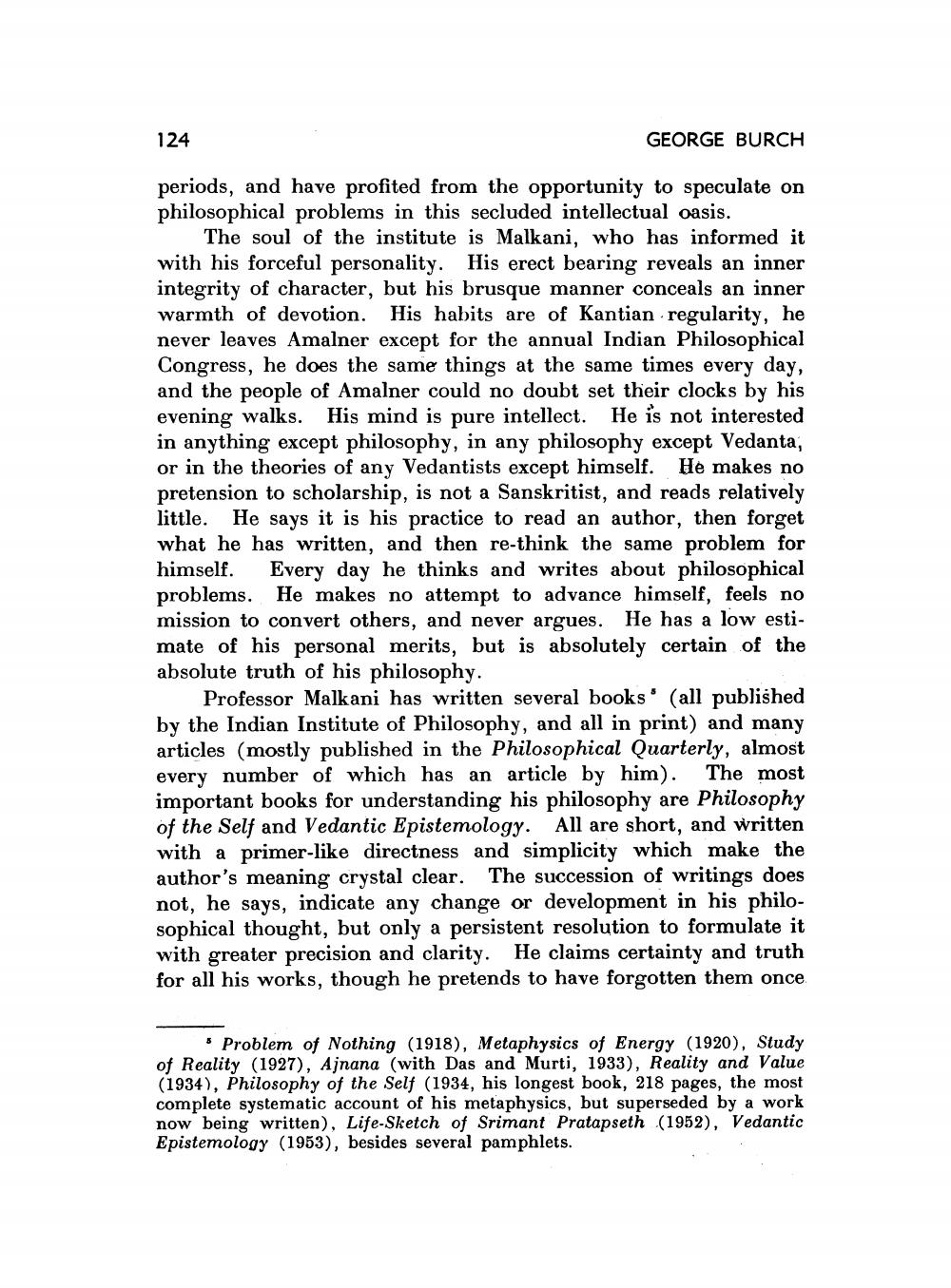Book Title: Contemporary Vedanta Philosophy Continued Author(s): George Burch Publisher: George Burch View full book textPage 3
________________ 124 GEORGE BURCH periods, and have profited from the opportunity to speculate on philosophical problems in this secluded intellectual oasis. The soul of the institute is Malkani, who has informed it with his forceful personality. His erect bearing reveals an inner integrity of character, but his brusque manner conceals an inner warmth of devotion. His habits are of Kantian regularity, he never leaves Amalner except for the annual Indian Philosophical Congress, he does the same things at the same times every day, and the people of Amalner could no doubt set their clocks by his evening walks. His mind is pure intellect. He is not interested in anything except philosophy, in any philosophy except Vedanta, or in the theories of any Vedantists except himself. He makes no pretension to scholarship, is not a Sanskritist, and reads relatively little. He says it is his practice to read an author, then forget what he has written, and then re-think the same problem for himself. Every day he thinks and writes about philosophical problems. He makes no attempt to advance himself, feels no mission to convert others, and never argues. He has a low estimate of his personal merits, but is absolutely certain of the absolute truth of his philosophy. Professor Malkani has written several books (all published by the Indian Institute of Philosophy, and all in print) and many articles (mostly published in the Philosophical Quarterly, almost every number of which has an article by him). The most important books for understanding his philosophy are Philosophy of the Self and Vedantic Epistemology. All are short, and written with a primer-like directness and simplicity which make the author's meaning crystal clear. The succession of writings does not, he says, indicate any change or development in his philosophical thought, but only a persistent resolution to formulate it with greater precision and clarity. He claims certainty and truth for all his works, though he pretends to have forgotten them once • Problem of Nothing (1918), Metaphysics of Energy (1920), Study of Reality (1927), Ajnana (with Das and Murti, 1933), Reality and Value (1934), Philosophy of the Self (1934, his longest book, 218 pages, the most complete systematic account of his metaphysics, but superseded by a work now being written), Life-Sketch of Srimant Pratapseth (1952), Vedantic Epistemology (1953), besides several pamphlets.Page Navigation
1 2 3 4 5 6 7 8 9 10 11 12 13 14 15 16 17 18 19 20 21 22 23 24 25 26 27 28 29 30 31 32 ... 36
